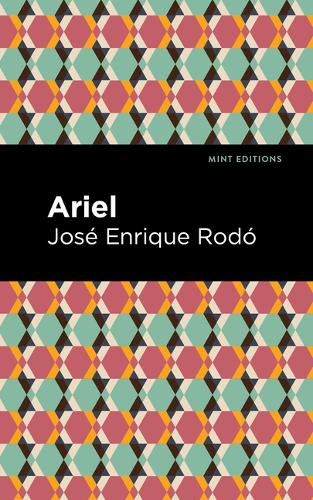
Ariel
(Hardback)
Publishing Details
Ariel
By (Author) Jose Enrique Rod
Contributions by Mint Editions
Mint Editions
Mint Editions
19th January 2022
United States
Classifications
General
Non Fiction
Physical Properties
Hardback
68
Width 127mm, Height 203mm
Description
Ariel (1922) is an essay by Jos Enrique Rod. Originally published in Spanish in 1900, Ariel was translated into English just five years after the authors death by F. J. Stimson, the former U. S. Ambassador to Argentina. The essay was immediately influential in Uruguay and across Latin America as an essential document of modernismo, a literary movement which sought to unite classical values and contemporary culture through a devotion to beauty and form. The gifts of the youthful spiritenthusiasm and hopecorrespond in the harmonies of history and natural history to movement and to light. Wherever you shall turn your eyes you will find these, the natural atmosphere in which move all things that are strong and beautiful. Captivated by a bronze statue of Ariel from Shakespeares The Tempest, a teacher known as Prospero speaks passionately to his young students on the eve of summer vacation. Taking a historical view of human civilization, Jos Enrique Rod applies the teachings of the Enlightenment to the political reality facing Latin America in the early twentieth century. Promoting morality and idealism over the encroaching utilitarianism of North America, Rod crafted what one critic called the ethical gospel of the Spanish-speaking new world. With a beautifully designed cover and professionally typeset manuscript, this edition of Jos Enrique Rods Ariel is a classic of Uruguayan literature reimagined for modern readers.
Author Bio
Jos Enrique Rod (1871-1917) was a Uruguayan philosopher, educator, and essayist. Born and raised in Montevideo, Rod was a major figure of the modernismo literary movement. In 1898, he was appointed professor of literature at the University of the Republic. Additionally, Rod served as the director of the National Library of Uruguay and as a member of the Chamber of Deputies. Through his correspondence with Leopoldo Alas of Spain, Jos de la Riva-Agero of Peru, and Rubn Daro of Nicaragua, Rod became the leading theorist of modernista literature, which sought to unite classical values and contemporary culture through a devotion to beauty and form. His major contribution to Latin American literature was Ariel (1900), an influential essay inspired by characters from Shakespeare's The Tempest. The essay is structured as a lecture by Prospero on authors from throughout European history. Ariel and Caliban, respectively the positive and negative aspects of human nature, represent the opposing forces of good and evil, the beautiful and the utilitarian in everyday life. Throughout his career, Rod criticized the process of nordomana, a term he used to describe the growing influence of North American values on Latin American culture.
